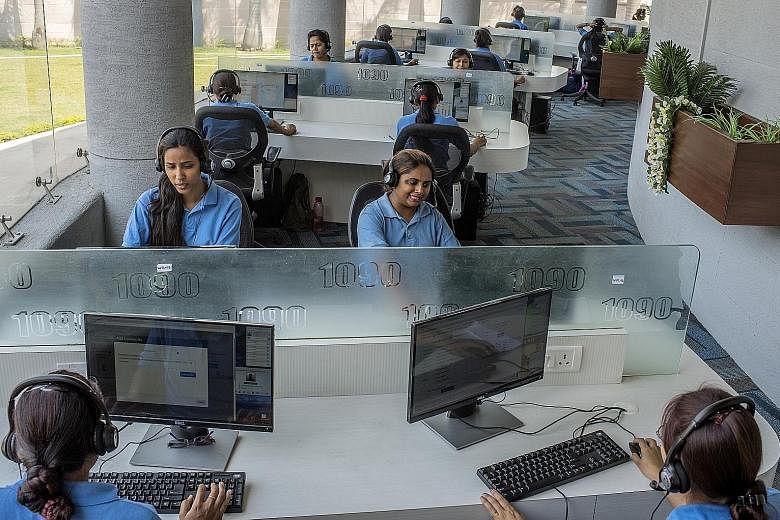LUCKNOW • In a glass-sided call centre, police constables tap noisily on computer keyboards, on the trail of a particularly Indian sort of criminal.
The "phone Romeo", as he is known here, calls numbers at random until he hears a woman's voice, in the hope of striking up a romantic attachment.
Among them are overeager suitors ("Can I recharge your mobile?"), tremulous supplicants ("I am talking to you, madam, but my body is shaking") and the occasional heavy breather ("I want to do the illegal things with you").
Intentionally dialling wrong numbers is a labour-intensive way to find a girlfriend.
But it is increasingly common in a range of countries - Morocco, Papua New Guinea, Bangladesh and India are examples - where traditional gender segregation has collided head-on with a wave of cheap new technology.
India is justly proud of its mobile phone revolution.
Call tariffs are among the world's cheapest, and competition has sent the price of broadband plummeting.
An estimated 680 million Indians use cellphones now, with three million new ones coming online every month.
An unintended consequence is that social barriers between men and women are collapsing.
Reports of phone stalking have increased exponentially, leading to growing complaints of harassment. But an unknown number of such calls are successful, resulting in what an American anthropologist has labelled "wrong-number relationships".
"It's a new thing," said Dr Julia Huang, a fellow in the anthropology department of the London School of Economics, who has written a scholarly paper on the practice among young women in Bangladesh.
"It's covert, it's risky, it's experimenting with that outside world which they don't have much access to."
At the police call centre in Lucknow in northern India, roughly 700 calls come in every day, mostly from women complaining of persistent calls from strange men.
The Hindustan Times recently reported that phone recharging outlets were selling the numbers of young women to interested men, charging 500 rupees (S$10) for a "beautiful" girl and 50 rupees for an "ordinary" one.
Recently, a complaint came from Ms Geetika Chakravarty, 24, a make-up artist who grew up travelling the world with her father, a diplomat.
After she returned to India from Canada last year, she posted her phone number in the contact section of a salon's Facebook page, and received so many calls from unknown men that she blocked 200 different numbers.
"I do not know what their mindset is," she said.
"Sometimes they call and say 'I love you'. Sometimes they call and say 'I want to talk to Sonia', and I would say 'I am not Sonia', and they would say 'OK, can I talk to you?' "
But the most persistent among them was a man who would call three or four times a day, urging her to meet him somewhere.
When she blocked his number, he would call from another. She began to worry that he would track her down in person.
"He sounded like a creepy Indian guy to me," Ms Chakravarty said.
When the police traced the number, the person they found at the end of it was Mr Premsagar Tiwari, whose name in Hindi translates as "Sea of Love".
The 24-year-old says his calls should better be understood as part of his search for a soulmate. He was using eight SIM cards to contact more than 500 women.
"I may be a failed man," said Mr Tiwari, "but I am very passionate."
The police were not impressed and held him in custody for 15 days.
NYTIMES

